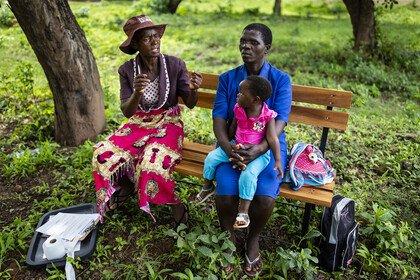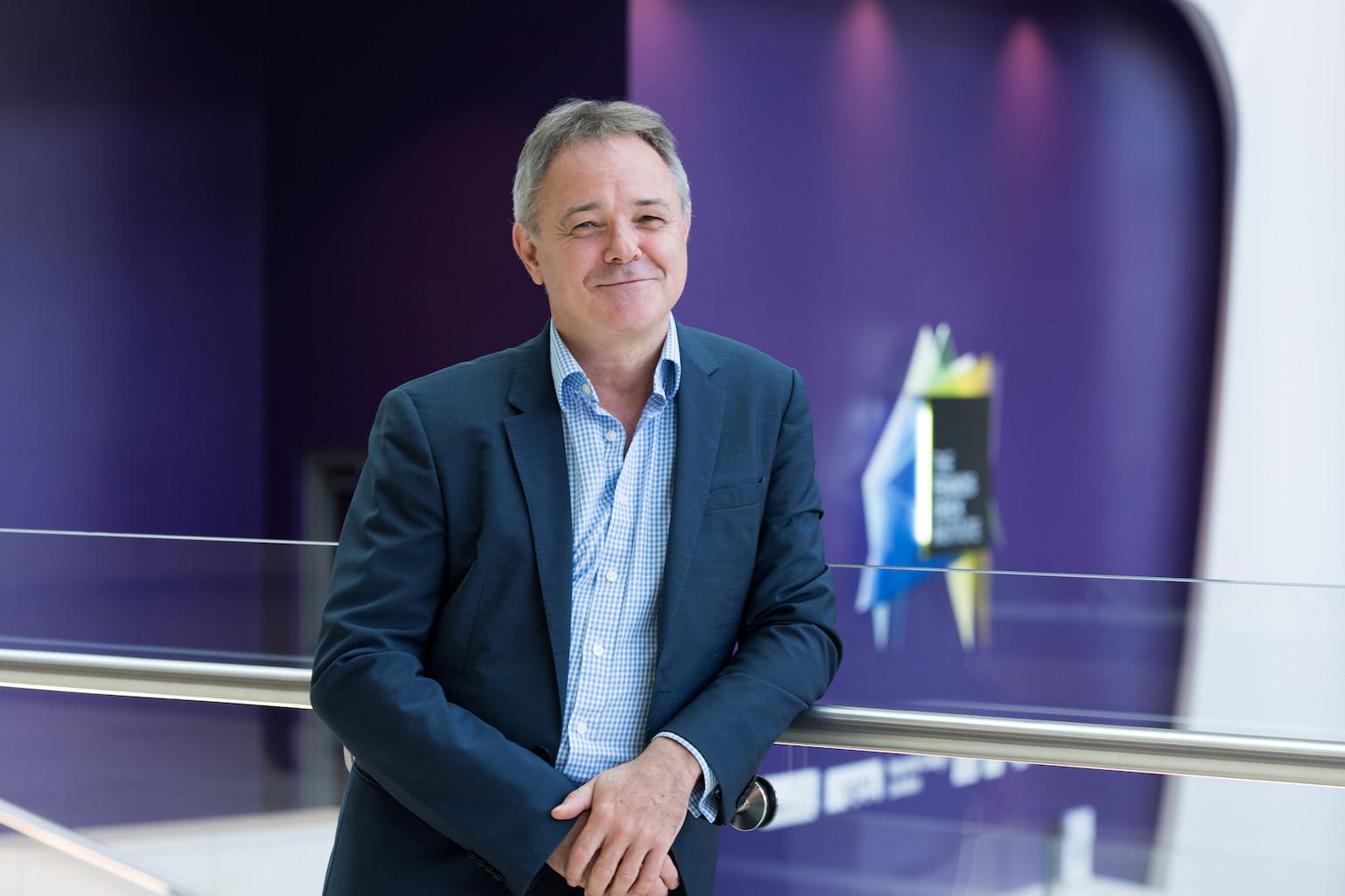
‘Science thrives best through international collaboration’ – Jeremy Farrar on ten years at Wellcome
Wellcome’s outgoing Director reflects on a decade of progress and looks ahead at the opportunities to improve health globally.

Wellcome
It is remarkable to look back on the role of science in enabling extraordinary advances in global health over the last decade – science that Wellcome has supported with researchers and partners around the world.
Though the challenges become ever greater and more urgent, I am optimistic that we are living in an era of significant and long-enduring innovation.
Ebola vaccine showed science at its best
I joined Wellcome as Director in 2013, following almost 18 years in Viet Nam researching infectious diseases. I lived and worked through avian flu, SARS-1, epidemics of drug-resistant typhoid and the emergence of HIV. I witnessed first-hand the effects of diseases such as dengue, TB and malaria on local communities. The world had yet to see the shocking impacts of Ebola in West Africa, Zika in South America, and SARS-CoV-2 everywhere.
At the time, Wellcome’s commitment to cutting-edge discovery research – and major activities like the Wellcome Sanger Institute, Francis Crick Institute and Wellcome’s Africa and Asia Programmes – had already led to breakthroughs in the human genome, neuroscience, social sciences and much more. Since then, our ambitions and horizons have grown at a breathtaking scale that even I could not have dared to dream.
There are countless moments where I am proud of Wellcome’s contribution to progress. Our response to the heart-breaking west African Ebola epidemic of 2014-16 stands out. The international community initially responded far too slowly and the epidemic spread across the region, devastating communities – the effects are still felt today. But progress was made with the development of the critically important Ebola vaccine.
This was an example of science at its best. Not so much because of the astonishing achievement of creating that vaccine, but because communities dared to ask: ‘what if?’. What if, during a crisis, we carried out the research needed to progress promising, life-saving science?
There was an appreciation for community ownership, the social sciences and the underlying trust to conduct research in a rapidly developing epidemic, to bring it to an end faster and save lives. This is a position that Guinea, Sierra Leone and Liberia along with partners in the region, WHO, Norway and Wellcome strongly advocated for, put funding behind and implemented.
Not all the lessons the world needed to heed on infectious disease were learnt from that epidemic, but the effective vaccine and treatment studies have saved thousands of lives since. This success is testament to local communities, health workers, researchers and industry.
I can also confidently say that this led to a transformational change to how we approach any disease outbreak, not just Ebola. It led to the creation of CEPI, which Wellcome proudly co-founded in 2016 and the set-up of the WHO R&D Blueprint. It led to a much quicker response including vaccination in subsequent Ebola epidemics in the Democratic Republic of Congo, and a much faster response to the Covid-19 pandemic in the form of the RECOVERY and Solidarity trials, which provided the evidence on what vaccines and treatments work and what did not.
By keeping patients and communities at the centre and daring to be bold and ambitious, we can make a meaningful change to health.
Wellcome’s resource and role
Thanks to our world-class investments team, Wellcome’s endowment has grown from £15 billion when I joined to £38 billion today, allowing us to more than double the amount we spend annually on research. Over the next ten years to 2033, Wellcome is committed to spending £16 billion supporting outstanding science.
Philanthropy cannot and should not replace the role of government or become the establishment. But Wellcome has the resource to initiate change as well as the independence and transparency that can be harnessed to push boundaries where others may not be able to.
It is this outlook that helped us refresh our strategy. We’re now better placed to support discovery, clinical and public health research that will transform our understanding of health, wellbeing and life itself. And we’re supporting science to solve the global health challenges of our changing climate, infectious disease outbreaks and mental health problems through dedicated programmes.
A vision for the future
The biggest advances to improve health are rarely, if ever, lone events or strokes of luck. Building on years of painstaking work, scientific success is only possible through iteration and learning. Science thrives best through international collaboration. We live in a highly connected world and we must look beyond our own borders, working together to benefit as many lives as possible. We all owe it to ourselves and to future generations to break down barriers.
It has been a unique honour and great pleasure to lead Wellcome for the last decade and I leave taking with me enormous pride in what we have achieved together.
The mission to improve health has never been more focused in the hands of the amazing teams that make Wellcome what it is today.
Paul Schreier, Wellcome’s Chief Operating Officer, has been appointed interim Chief Executive Officer, with effect from 25 February 2023. Jeremy Farrar will take up the position of Chief Scientist of the World Health Organization later this year.


